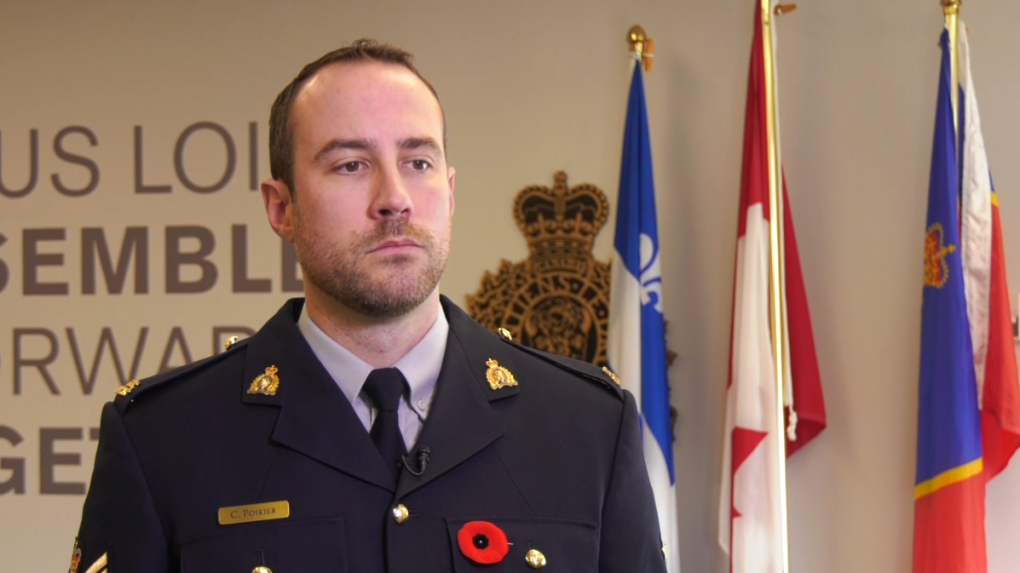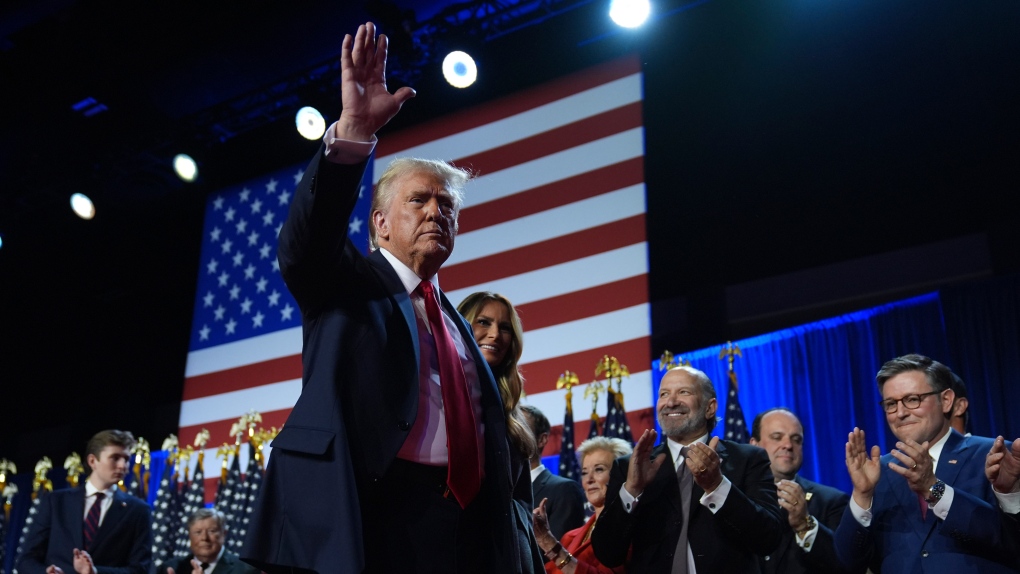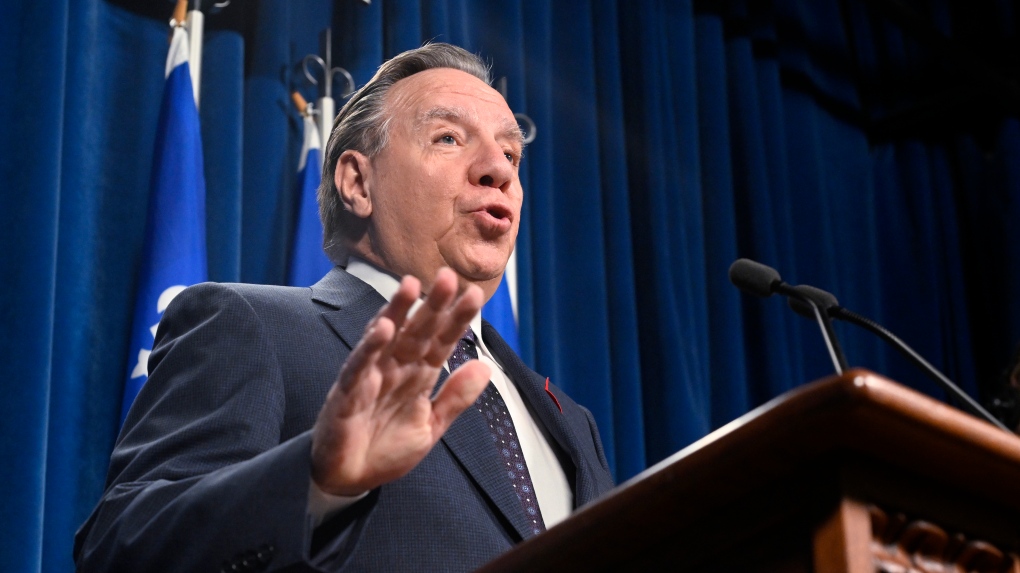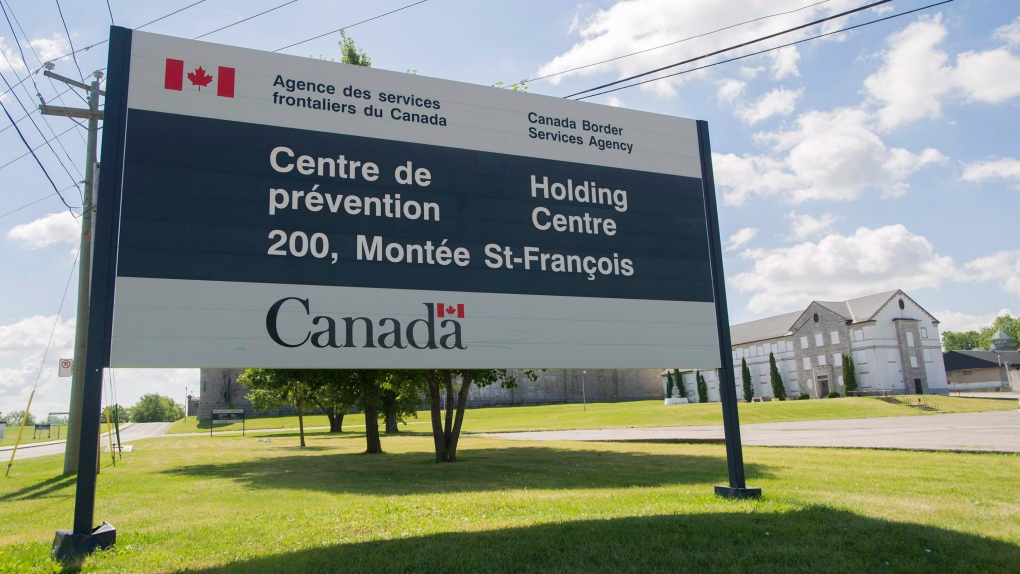RCMP already 'on high alert' for potential wave of migrants after Trump election
When Donald Trump vowed to clamp down on immigration as part of his campaign for president of the United States, the RCMP was listening closely.
Canada's federal police force has been preparing for months on a contingency plan for a potential massive influx of migrants across the border following Trump's promise of "mass deportations" of millions of undocumented immigrants in the U.S.
Now that the former president has been elected for another term, the RCMP has been "on high alert." If a surge materializes, the Mounties expect it to take place before Trump’s inauguration in January.
Questions remain on how many people would cross into Canada and whether Canadian authorities have the resources to handle them.
"We started planning because we knew that there were a lot of people in the United States who will fear to be deported, and if that happens, they won't wait for the Trump administration to seize power, it's more likely that they will attempt to cross into Canada from now in the next few weeks until he takes on power," RCMP spokesperson Sgt. Charles Poirier told CTV News on Thursday.
 RCMP Sgt. Charles Poirier speaks to CTV News in Montreal about the Mounties' plans for a potential influx of migrants at the Canadian border following Donald Trump's vow to deport millions of undocumented immigrants once he takes office. (CTV News)
RCMP Sgt. Charles Poirier speaks to CTV News in Montreal about the Mounties' plans for a potential influx of migrants at the Canadian border following Donald Trump's vow to deport millions of undocumented immigrants once he takes office. (CTV News)
The Mounties are preparing for all outcomes, including a worst case scenario of a huge wave of migrants, especially along the roughly 800 kilometre Quebec-U.S. border.
The plan for that includes deploying more RCMP officers along the border, including in wooded areas. It also involves buying or renting space to temporarily hold migrants, buying more police vehicles, and borrowing officers from other provinces, similar to what was done after the 2016 U.S. election.
"All options are on the table right now," Poirier said. "But at the end of the day, if someone comes in we absolutely need to arrest them so we'll put in whatever resources we have to make sure we arrest everyone that comes in."
Labour shortages at the border
However, there are concerns that the labour force on Canada's border is already facing shortages and needing more boots on the ground will bring more challenges.
The union representing front-line customs and immigration officers at Canada Border Services Agency, the Customs and Immigration Union (CIU), said it would need between 2,000 and 3,000 more officers to effectively do their jobs.
"This is a long-standing issue. If the government wishes to have the capacity to respond to any additional pressure at the border — for whatever reason — it is therefore crucial to ensure that CBSA is adequately staffed," said CIU spokesperson Pierre St-Jacques in an email.
 Republican presidential nominee former President Donald Trump and former first lady Melania Trump walk on stage at an election night watch party at the Palm Beach Convention Center, Wednesday, Nov. 6, 2024, in West Palm Beach, Fla. (AP Photo/Evan Vucci)
Republican presidential nominee former President Donald Trump and former first lady Melania Trump walk on stage at an election night watch party at the Palm Beach Convention Center, Wednesday, Nov. 6, 2024, in West Palm Beach, Fla. (AP Photo/Evan Vucci)
After Trump's first election in 2016, a wave of asylum seekers began entering Canada illegally, mostly along Roxham Road in Quebec. They came there due to a loophole in the Safe Third Country Agreement that required people to claim asylum in whichever country they come to first. Last year, Canada and the U.S. modified the agreement, which closed Roxham Road.
Chantal Ianniciello, vice-president of humanitarian aid for Quebec's immigration lawyers' association, told The Canadian Press that as of now, the only way for most people coming from the U.S. to claim asylum in Canada is to enter the country illegally and remain undetected for more than two weeks, since the revised agreement applies to anyone who makes a claim within 14 days of crossing the border.
Canada prepared for any outcome: public safety minister
Quebec Premier François Legault is also calling on Ottawa to act quickly to ensure the border is properly staffed, fearing a significant number of people crossing into the province.
"What I want to do is make sure that Mr. Trudeau, the federal government take this seriously," Legault told reporters on Wednesday.
"And I want to follow up every week about the number of new immigrants we get in Quebec. I want to make sure he protects the physical borders, that he protects airports, and, if needed, I will make sure to have some of our people making sure of that."
 Quebec Premier Francois Legault reacts to the election of Donald Trump at a news conference before question period, Wednesday, November 6, 2024 at the legislature in Quebec City. THE CANADIAN PRESS/Jacques Boissinot
Quebec Premier Francois Legault reacts to the election of Donald Trump at a news conference before question period, Wednesday, November 6, 2024 at the legislature in Quebec City. THE CANADIAN PRESS/Jacques Boissinot
On Thursday, Prime Minister Justin Trudeau announced the revival of a special cabinet committee dedicated to Canada-U.S. relations focusing on "critical" issues between the two countries. Among the cabinet ministers sitting on the committee is Immigration Minister Marc Miller.
Public Safety Minister Dominic LeBlanc said he was briefed on contingency plans drawn up by the RCMP and the CBSA, but declined to go into specifics.
"I think Canadians should have a lot of confidence that any particular risk will be mitigated by the work and the planning that they've been doing for a number of months," he told CTV News, adding that he is not expecting the worst case scenario at the border.
"We're preparing as any responsible government should in terms of contingencies. But we also think it's important not to scare Canadians. There are people that will seek to scare Canadians for a whole bunch of reasons that we don't think are particularly productive."
More resources needed, immigration lawyer says
Vancouver immigration lawyer Richard Kurland said Canada will also be the one bearing the brunt of Trump's migration measure should he follow through with the election promise and believes it’s a “very real possibility” that there could be a surge at the border.
He suspects the crackdown could result in a "tsunami of refugee claims to be made in Canada" by people who fear they might be placed in deportation camps in the U.S. before being sent home.
"Unless Canada suddenly allocates huge resources to expanding the refugee determination system itself, the years required to wait for an oral hearing will be in excess of half a decade and longer," Kurland wrote in an email.
 A Canada Border Services Agency immigrant holding centre is shown in Laval, Que., on Monday, August 15, 2016. THE CANADIAN PRESS/Graham Hughes
A Canada Border Services Agency immigrant holding centre is shown in Laval, Que., on Monday, August 15, 2016. THE CANADIAN PRESS/Graham Hughes
The head of the Montreal-based non-profit organization Refugee Centre said in recent days there has been more "fear-mongering" around a potential wave of immigrants, but cast doubts on whether or not the border will be overwhelmed.
"If we are going to see increased numbers, they're going to happen gradually," Abdulla Daoud said in an interview with The Canadian Press. "It's going to be over years. It's not going to be over days."
According to Daoud, Canada may be more likely to see an increase in asylum seekers from other countries who are avoiding the United States as opposed to people trying to head north across the border.
As it prepares for all scenarios, the RCMP hopes to avoid repeats of tragedies it saw in previous years as families made the treacherous trek across the border, including cases of young children suffering hypothermia, adults having amputations due to frostbite, dramatic rescues of people stranded in the woods, and deaths.
"That puts so much strain on our resources that we have, we've had to actually adapt the way we patrol the border," Sgt. Poirier said.
"So the message to send out there, and I know those people are desperate, is it's not easy and it's not safe, and when they deal with human smugglers or human smuggling operations, they will make them believe that it is easy and safe, but it's anything but, really."
With files from The Canadian Press
CTVNews.ca Top Stories

W5 Investigates Provinces look to Saskatchewan on how to collect millions more for victims of crime
A W5 investigation showed how convicted criminals ordered to pay restitution struggled to do so, and how just $7 million of more than $250 million had been claimed. While many provinces struggle to keep track, Saskatchewan is leading the way in making sure victims get their money.
'Tragic and sudden loss': Toronto police ID officer who died after suspected medical episode while on duty
A police officer who died after having a suspected medical episode on duty was executing a search warrant in connection with an ongoing robbery investigation in North York, Toronto police confirmed Thursday.
Who received the longest jail terms in the Gisele Pelicot rape trial?
A French court found all 51 defendants guilty on Thursday in a mass rape case including Dominique Pelicot, who repeatedly drugged his then wife, Gisele, and allowed dozens of strangers into the family home to rape her.
PM Justin Trudeau planning sizable Friday cabinet shuffle, sources say
Prime Minister Justin Trudeau is planning a sizable cabinet shuffle on Friday, sources confirm to CTV News. The long-awaited reconfiguration of Trudeau's front bench comes amid turmoil for the Liberal government after the shocking resignation of Chrystia Freeland.
Child struck by vehicle south of London has died
According to an online fundraiser organized by a family friend, the boy who was hit by a driver south of London earlier this week has died.
Manitoba man wins $40M Lotto Max jackpot, among top 5 jackpots in province's history
A Manitoba man has won one of the top five largest lottery jackpots in Manitoba history.
64 cases of 'norovirus-like' illness linked to raw oysters in B.C., officials say
Dozens of people have become ill after eating raw oysters in B.C. since Nov. 1, public health officials warned Thursday.
Conan O'Brien pays tribute to his parents who died within days of each other
Conan O’Brien is remembering his recently deceased parents. In an interview with the Boston Globe, the former late night television host talked about his mother, Ruth Reardon O’Brien, who died last Thursday, and Dr. Thomas F. O’Brien, who preceded his wife in death three days earlier.
N.B. Liberal government revises Policy 713, parental consent no longer required for students' preferred names
The New Brunswick Liberals are reversing course on the previous government’s decision to change Policy 713.

































